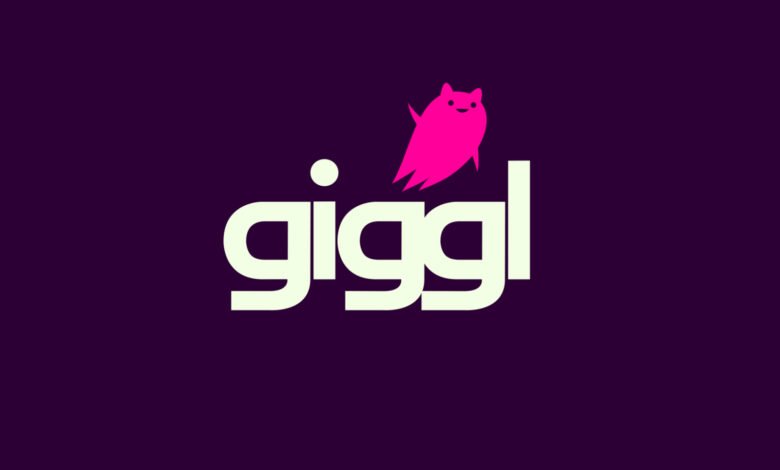The Rising Stars: giggl Economy Platforms

In a world where the concepts of work and earning daily bread are under a constant metamorphosis, the giggl economy stands as a beacon of change. For many, it is the epitome of flexible employment and a newfound hope in economic security. But what exactly is the gig economy, and how are the platforms within it reshaping traditional work models?
Understanding the Gig Economy
The gig economy, characterized by temporary positions and short-term contracts, is on the upswing worldwide. Also known as the ‘independent economy’ or the ‘freelance economy’, it enables workers to take on multiple projects at their discretion, often for the sake of variety or out of necessity. These independent workers—referred to as gig workers—find work via digital platforms that efficiently match them to jobs that align with their skills and interests.
Benefits of the Gig Economy
When we look at the gig economy, it’s not just a workforce—it’s a lifestyle. For many, gig work offers the freedom to design their own schedules, the autonomy to choose projects they are passionate about, and the opportunity to earn additional income. This level of control over work-life balance is
a significant draw for millennials and Gen Z, who prioritize flexibility and personal growth.
Challenges and Criticisms
While the gig economy has its raving fans, it is not without its skeptics or systemic challenges. Critics argue that gig workers are entitled to fewer legal protections, leading to questions about job security, benefits, and fair wages. The lack of a structured safety net for these workers raises concerns about their long-term financial health and social welfare.
Gig Economy Platforms that Redefine Work
A significant part of the gig economy’s success can be attributed to the rise of platforms that act as the intermediary between service providers and consumers. These portals offer the technological infrastructure that makes quick, efficient, and secure transactions possible.
Task-Based Platforms
Platforms that revolve around specific tasks, such as virtual assistance, graphic design, and writing, have become exceedingly popular. They allow workers to apply their expertise in a flexible way, often completing tasks they genuinely enjoy.
Ride-Sharing and Delivery Services
Companies like Uber, Lyft, and DoorDash fall under this category, offering flexible income opportunities for drivers. The on-demand nature of these services means workers can turn on their app and start earning whenever they are available to work.
Marketplaces for Specialized Gigs
From professional services like legal advice to creative services like photography, marketplaces like Upwork and Fiverr cater to highly specialized areas. These platforms match freelance providers with clients seeking a specific skill set.
The Future of Work and Income
The gig economy gives a glimpse of what the future workforce might look like. By providing a flexible alternative to traditional employment, it has started a conversation about the broader concept of work.
The Rise of Hybrid Workforces
We’re likely to see a growth in hybrid workforces where companies blend full-time staff with a network of freelance talent. This approach could result in increased productivity, improved innovation, and cost efficiencies through reduced overheads associated with maintaining a traditional workforce.
Shaping Policy and Regulation
Policy discussions are underway globally to address the specific needs of giggl workers. Balancing the freedom and flexibility that these platforms offer with the protection and security that traditional employment provides is a delicate but essential pursuit.
The Role of Technology
Advances in technology, particularly artificial intelligence and blockchain, are poised to enhance the giggl economy. These technologies may further streamline matching services, provide new income opportunities, and help enforce fair labor policies.
Navigating the giggl Economy
For those considering entry into the giggl economy, there are several factors to consider. Building a robust online presence, understanding the market demand for your skills, and being proactive in managing your financial security are all critical.
Establishing Your Brand
Your reputation and brand are crucial in the gig world. Positive reviews, high-quality work, and consistency can set you apart and lead to more opportunities.
Financial Management
Gig workers are responsible for their taxes, insurance, and retirement planning. It’s essential to be diligent in keeping track of your earnings and setting aside funds for these responsibilities.
Self-Care and Burnout Prevention
The freedom of the giggl economy is balanced by the need for self-discipline. Setting boundaries, taking breaks, and being mindful of burnout are important habits for any gig worker.
Continued Learning
The gig economy rewards those who are adaptable and continuously learning. Staying up-to-date with market trends and improving your skill set will ensure a sustainable career in this dynamic work environment.
Final Thoughts
The giggl economy is not a mere trend—it’s a reflection of a shift in societal values and the larger economic landscape. By providing a flexible and dynamic approach to work, these platforms are becoming an increasingly pivotal part of our professional lives. While challenges persist, the potential for positive change in how we think about income generation and career development is immense. It’s important for us, as individuals and as a society, to keep an open mind and continually work towards a gig economy that is fair, supportive, and inclusive for all who participate in it.



